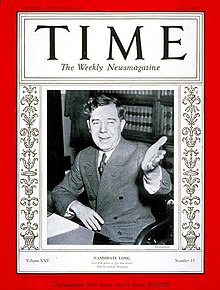Don’t worry. Your favorite history podcast hasn’t suddenly turned into a true crime show. Neither has this one.
We know who actually pulled the trigger: Carl Weiss, aged thirty. He was a quiet fellow who loved art and music and math and had gotten his medical degree in Paris. His wife Yvonne had recently had a baby. She was the daughter of Benjamin Pavy, a judge that Huey Long was forcing out of office. Huey claimed that the Pavy family had “coffee blood,” which is just the kind of racial slur you think it is. Huey had also fired Yvonne’s uncle, a school principal, and her sister, a third-grade teacher.
It could very well be that Carl Weiss, a student of art and history, saw himself as a modern-day Hamlet avenging his in-laws’ honor, knowing that when it comes to getting rid of dictators, there are very few options. Mostly one option.
But if this was a true crime podcast, which I hear are super-popular (just wait till I get to the trainwreck that is the Kennedy assassination) I would have to speculate that Carl Weiss might just have been the patsy, the tip of someone else’s spear.
Because there were lots of people who wanted to kill Huey Long.
Huey was killed by an assassin's bullet. His last words were "God, don't let me die. I have so much to do."
He died on September 10, 1935, but his political machine controlled Louisiana politics until the 1960's. His son served in his father's Senate seat from 1948 to 1987.
He died on September 10, 1935, but his political machine controlled Louisiana politics until the 1960's. His son served in his father's Senate seat from 1948 to 1987.
His legacy in Louisiana lives on.
Sources
White, Richard D. “Kingfish: The Reign of Huey P. Long.”
Random House, 2009.
Wikipedia, “Huey Long.” Retrieved September 17, 2022 from https://en.wikipedia.org/wiki/Huey_Long









